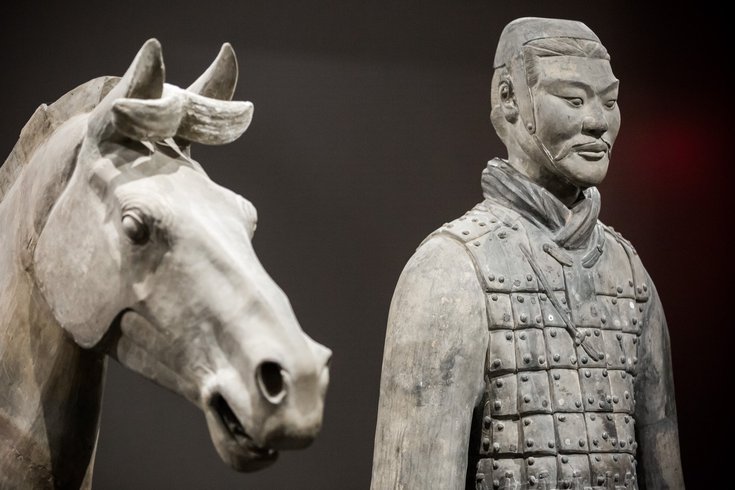
March 31, 2023
 Thom Carroll/for PhillyVoice
Thom Carroll/for PhillyVoice
Michael Rohana, the Delaware man accused of stealing the left thumb of the terra cotta warrior pictured above during a December 2017 holiday party at the Franklin Institute, is expected to plead guilty to a lesser charge in exchange for more serious charges being dropped.
The Delaware man accused of stealing the left thumb of a 2,000-year-old Chinese sculpture has accepted a plea deal that removes the most serious charges against him.
Michael Rohana, of Bear, allegedly broke off the thumb of a terra cotta warrior during an ugly sweater party at the Franklin Institute in December 2017. The "Cavalryman" sculpture, a statue uncovered at the tomb of China's first emperor, was part of a traveling exhibit on display at the Philadelphia museum for several months.
Rohana will plead guilty to charges of interstate trafficking, which carries a maximum two-year prison sentence and $20,000 fine, KYW reported. The federal charges dismissed against him – theft and concealment of an object of cultural heritage from a museum – could have kept him in prison for up to 30 years. He will be sentenced April 17 in federal court.
According to charging documents, Rohana entered the terra cotta warrior exhibit, which had been closed and roped off, during the museum's booze-filled, afterhours holiday party. He allegedly put his arm around the "Cavalryman" and took a selfie with the sculpture before breaking off its thumb and placing it in his pocket.
The 10 sculptures in the exhibit were valued at $4.5 million, with the thumb worth an estimated $5,000.
An FBI investigation was launched after the museum noticed the thumb was missing in January 2018. Rohana turned over the thumb when an FBI agent questioned him at his home, authorities said.
The Chinese government urged the U.S. to issue a harsh penalty for the incident, and City Council passed a resolution apologizing to China for the damage.
When Rohana initially faced the charges in April 2019 trial; he admitted to making a drunken mistake. A mistrial was declared after the jury deadlocked. Rohana's attorneys had argued that the charges filed against him were intended for major art thefts – not "youthful vandalism." A possible retrial was delayed due to the COVID-19 pandemic.